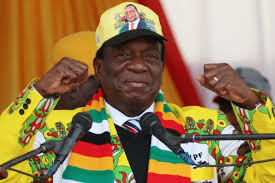
The shortage of foreign currency is threatening the parity between the United States dollar and the Zimbabwean bond note and there are fears the shortage could resurrect the US$ black market as companies battle to stay afloat, analysts have said.
BY NDAMU SANDU
Companies have been struggling to secure the elusive dollar in order to make foreign payments for key raw materials due to foreign exchange shortages.
The warning comes as Reserve Bank of Zimbabwe (RBZ) governor John Mangudya is set to present his monetary policy statement this month.
Zimbabwe National Chamber of Commerce CEO Chris Mugaga said if the monetary policy statement failed to speak to the problems of foreign exchange shortage, it would have fallen short of expectation.
“Foreign currency shortages are affecting every business and the worst affected are the multinationals which will have a bearing on foreign direct investment and portfolio investments on the equities market,” Mugaga said.
“Quality of trade goes down if the equities market is driven by domestic investors.”
- Chamisa under fire over US$120K donation
- Mavhunga puts DeMbare into Chibuku quarterfinals
- Pension funds bet on Cabora Bassa oilfields
- Councils defy govt fire tender directive
Keep Reading
Mugaga said the drying up of the nostro accounts had negatively affected the performance of companies and reversed the gains that would have been created by the restriction of imports on selected products under Statutory Instrument 64 of 2016.
He said Mangudya should come up with a special committee to manage the impact of bond notes, adding that it would be disastrous if Gresham’s law became a reality in Zimbabwe.
Gresham’s law is a monetary principle which states that if there are two forms of commodity money in circulation, which are accepted by law as having similar face value, the more valuable commodity will disappear from circulation. The United States dollar, which was put at par with the bond note, is slowly disappearing from the market and a US$ black market — which had died at the onset of the multicurrency regime in 2009 — is slowly coming back to life.
Mugaga said the situation would worsen when the bond note lost its parity to the dollar, thereby “distorting a number of value chain activities”.
He said banks were not being honest and had not been managing the foreign exchange properly.
Banks manage about 70% of the foreign exchange while the central bank oversees the remainder.
“Banks give individuals money to import cars instead of giving that money to companies to import raw materials,” he said, adding that a committee on foreign exchange should be expanded to include players from the private sector.
Two weeks ago, exporters told an Ease of Doing Business Using the Rapid Results Approach for the Export Sector workshop that banks were refusing to make foreign payments, even if their money in the bank accounts came from outside the country.
Mangudya is on record saying companies or individuals that brought in foreign currency from outside the country had a right to use that money.
Under the central bank’s priority list, raw materials are listed under priority one.
An economist with a local bank told Standardbusiness the shortage of foreign exchange gave incentives for exporters to find ways of beating regulations through under-declaration of export receipts.
He said prices had gone up due to uncertainties companies faced in obtaining foreign currency.
“Price increases are a reflection of uncertainty created in the foreign exchange market,” he said, adding that the shortage of foreign exchange would affect the exchange rate between the bond note and the United States dollar.
“If the United States dollar is not available, it will be a recipe for exchange rate pressure between bond notes and the dollar. If the dollar dries up, it affects the exchange rate and that parity will not hold,” he said.
“If you are desperate, you will buy the dollar at a higher exchange rate.”
Buy Zimbabwe chief economist Kipson Gundani said Mangudya’s statement should centre on the building of confidence to disincentivise the emergence of the black market.
He said Mangudya should introduce measures to improve the source of liquidity as the nostro holdings were dwindling.
“A number of companies call us to find out if we can assist them to push through TTs [telegraphic transfers]. We should look at ways of nourishing our nostro accounts through increased exports,” Gundani said.
He said the central bank should encourage the use of plastic money, particularly the unbanked sector in rural areas to reduce the demand for cash.











